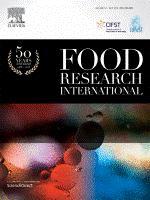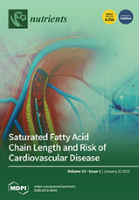The Science of Erythritol
What scientific evidence is there to support the use of Erythritol?
-
 Erythritol has a zero caloric value and does not raise insulin levels, making it a great sugar substitute for weight management.
Erythritol has a zero caloric value and does not raise insulin levels, making it a great sugar substitute for weight management.
-
 Erythritol has been found to improve memory and cognitive function, likely due to its antioxidant properties and ability to reduce inflammation in the brain.
Erythritol has been found to improve memory and cognitive function, likely due to its antioxidant properties and ability to reduce inflammation in the brain.
-
 There is some evidence that consuming large quantities of erythritol can impact the heart, but studies did not exclude the natural production of erythritol as part of glucose metabolism, which makes the data inconclusive.
There is some evidence that consuming large quantities of erythritol can impact the heart, but studies did not exclude the natural production of erythritol as part of glucose metabolism, which makes the data inconclusive.
-
 Erythritol has minimal impact on cells in the body. It is not fully metabolized and is mainly excreted unchanged in the urine.
Erythritol has minimal impact on cells in the body. It is not fully metabolized and is mainly excreted unchanged in the urine.
-
 Erythritol has a glycaemic index of zero and does not spike blood sugar levels, helping maintain steady energy levels without the crash associated with other sugars.
Erythritol has a glycaemic index of zero and does not spike blood sugar levels, helping maintain steady energy levels without the crash associated with other sugars.
-
 Erythritol has been shown to increase the growth of beneficial bacteria in the gut while inhibiting harmful bacteria. It also helps to reduce the production of endotoxins that can cause inflammation and gut damage.
Erythritol has been shown to increase the growth of beneficial bacteria in the gut while inhibiting harmful bacteria. It also helps to reduce the production of endotoxins that can cause inflammation and gut damage.
-
 Erythritol has been shown to have immune-modulating effects, helping to regulate the immune response. It has also been shown to have a positive impact on the gut-associated lymphoid tissue (GALT), which plays an important role in the immune system.
Erythritol has been shown to have immune-modulating effects, helping to regulate the immune response. It has also been shown to have a positive impact on the gut-associated lymphoid tissue (GALT), which plays an important role in the immune system.
-
 Erythritol has a glycaemic index of zero and does not raise blood sugar levels, making it a good option for those with diabetes or blood sugar issues. It is also calorie-free and does not contribute to weight gain.
Erythritol has a glycaemic index of zero and does not raise blood sugar levels, making it a good option for those with diabetes or blood sugar issues. It is also calorie-free and does not contribute to weight gain.
-
 Erythritol is not metabolized by the liver and does not contribute to the formation of fat in the liver, making it a safe option for those with liver issues. It has also been shown to reduce liver inflammation in animal studies.
Erythritol is not metabolized by the liver and does not contribute to the formation of fat in the liver, making it a safe option for those with liver issues. It has also been shown to reduce liver inflammation in animal studies.
-
 Erythritol has been shown to inhibit the growth of oral bacteria that cause tooth decay and gum disease. It has also been shown to help maintain a neutral pH in the mouth, which can help to prevent dental erosion.
Erythritol has been shown to inhibit the growth of oral bacteria that cause tooth decay and gum disease. It has also been shown to help maintain a neutral pH in the mouth, which can help to prevent dental erosion.
-
 Erythritol has been shown to have neuroprotective effects, helping to protect the nervous system from damage caused by oxidative stress and inflammation.
Erythritol has been shown to have neuroprotective effects, helping to protect the nervous system from damage caused by oxidative stress and inflammation.
Dr. Coy and Intelligent Sugar Research
Award winning scientist Dr. Johannes Coy discovered the TKTL1 gene. This gene allowed modern humans to evolve from our Neanderthal ancestors.
Homo sapiens produce more neurons in the frontal lobe than Neanderthals due to a single amino acid change in the protein TKTL1.
Unfortunately, our modern diet contains an excess of glucose, fructose and sucrose (‘classic sugars’) and we need half the calories our ancestors needed to survive. This has turned TKTL1 against us.
Classic sugars spike blood sugar, causing inflammation, insulin resistance and disease. The epidemic of lifestyle diseases, like diabetes and cancer, are driven by TKTL1 and our sweet excess. But it doesn’t have to be this way.

“The suffering for those affected, and their relatives (as well as the financial impact on society, and the burden on the next generation) could be avoided, if knowledge about the importance of blood sugar levels were implemented promptly, and our diet adapted to today’s situation with little physical exercise and a lot of stress”
Dr Johannes Coy
Want to know more?
If you would like to learn more about the extensive research supporting the way erythritol impacts wellness, here is a small sample of some studies we think you’ll find interesting.

Temporal sweetness and side tastes profiles of 16 sweeteners using temporal check- all-that-apply (TCATA)
This study aimed to compare the temporal sweetness and qualitative differences of 15 sweeteners to sucrose. Various sweeteners from different groups were evaluated by 20 participants using the Temporal Check-all-that-Apply (TCATA) method. Sucrose exhibited a rapid onset of sweetness and minimal side tastes. Acesulfame-K, stevia, and luo han guo had prominent bitter, metallic, and chemical tastes. Allulose, erythritol, sorbitol, aspartame, and sucralose had some side tastes but maintained sweetness. Nutritive sweeteners like dextrose, fructose, maltitol, mannitol, sucrose-allulose mixture, palatinose, and xylitol had taste profiles most similar to sucrose in terms of sweetness onset, peak sweetness, decay, and side tastes. This information can help in selecting suitable sucrose substitutes based on taste profiles.

Letter Regarding Article, “Metabolomic Pattern Predicts Incident Coronary Heart Disease”
This article discusses the use of erythritol, a metabolite, as a predictive marker for coronary heart disease. Erythritol is a naturally occurring noncaloric sweetener and not an artificial sweetener. The presence of erythritol in blood samples cannot be explained by its consumption as a sugar replacement. Studies have shown an association between erythritol levels and impaired glycemic control and central adiposity. The conversion of glucose to erythritol via the pentose-phosphate pathway may play a role in reflecting impaired glycemic control and its related complications. Further research is needed to fully understand the connection between erythritol concentrations and these health conditions.
Erythritol is a pentose-phosphate pathway metabolite and associated with adiposity gain in young adults
This study investigated metabolomic markers associated with the development of central adiposity in young adults. Participants with incident central adiposity gain had higher levels of blood erythritol compared to those with stable adiposity. Participants with higher baseline hemoglobin A1c (HbA1c) levels also had significantly higher blood erythritol. Erythritol was found to be synthesized from glucose through the pentose-phosphate pathway, suggesting its potential role in the association between erythritol and obesity in young adults.
Erythritol: An In-Depth Discussion of Its Potential to Be a Beneficial Dietary Component
This article discusses the safety, production, metabolism, and health effects of erythritol, a sugar alcohol used as a food ingredient. It is naturally occurring in plants and can be produced commercially. Erythritol is well tolerated, has negligible energy content, and does not affect glucose or insulin levels. It has the potential to be a beneficial sugar replacement for weight loss and modulation of satiety. Long-term rodent studies indicate that erythritol consumption can lower body weight and adiposity. However, observational studies show a positive association between plasma erythritol and obesity and cardiometabolic disease, which may be due to dysregulated pentose phosphate pathway. Further long-term clinical trials are needed to investigate the effects of chronic erythritol consumption on body weight and metabolic diseases. Overall, current evidence suggests that dietary erythritol can have beneficial effects compared to caloric sugars and address consumer misperceptions.
Latest News & Insights
The Warburg Effect: Diet and Cancer (the latest evidence)
In 1931 Otto Warburg won a Nobel Prize for his research into tumours, and cancer cells. He discovered that healthy cells and cancer cells ‘breathe and eat’ (metabolise) very differently.
Empowering Women with Cancer: An Interview with Caroline Justich, Founder of Be accepted
Inspirational and cancer-defying, Caroline Justich is the founder of Be accepted, Home of the smart 8, an initiative for women diagnosed with cancer.





